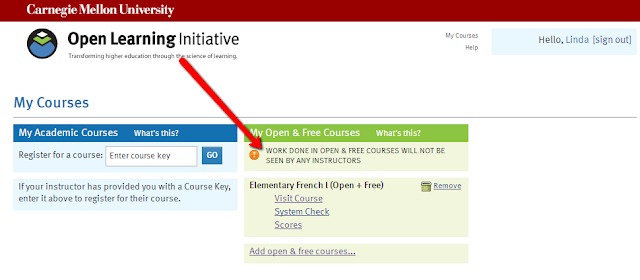| Does this strike you as a leisurely activity? |
Knowing another language is a highly prized ability, right? Don't we identify polyglots as really smart, well educated, super intelligent, and in general, superior human beings? So if knowing another language is so desirable, why don't more Americans (and we are not alone in this) make the effort to break out of our monolingualism?
You've heard the old joke: "What do you call a person who knows three languages? Trilingual. What do you call a person who knows two languages? Bilingual. And what do you call a person who knows only one language? American.
The old excuses for English Only immediately rear their heads. Europeans live closer to other countries, so they have more language learning opportunities. European schools begin language study at an early age. Isn't English becoming the universal language, so aren't I lucky that I already speak English? If anyone wants to do business with me, they had better speak English. And on and on...
I would like to offer a new perspective. How about plucking second language acquisition out of the realm of really serious stuff and nestle it into a category of fun things to do with my life? Let's think about language acquistion the same way we do learning to play a musical instrument, conquering a new piece of software, mastering making homemade flour tortillas, or training to run a marathon. Challenging, but intriguing and rewarding.
I'm in the midst of trying to recoup some of the knowledge of the French language that has been stuffed into my head at various points in my schooling. Instead of approaching this task (oops, I didn't mean to say task), rather, opportunity for creativity, with an intense desire to succeed, how about if I take a more relaxed approach?
The first baby step I took to ween myself away from language learning as pain rather than pleasure was to sign up for a free online course with no feedback from an instructor. If you are a language instructor reading this blog, please don't get out the rotten tomatoes just yet. I spent my teaching career in second languages, so I think we still can play a vital role in language learning. More about that topic in a future blog.
What, a course where no one will tell me if I am right or wrong? No homework, no tests, no one to encourage me, just me and my computer? Yes.
In the weeks that follow, I want to share my experiences with learning a language through an open, online course. And I hope to investigate and evaluate other alternative ways of acquiring a language.
Wish me luck! And send me a comment about language learning in your life.




